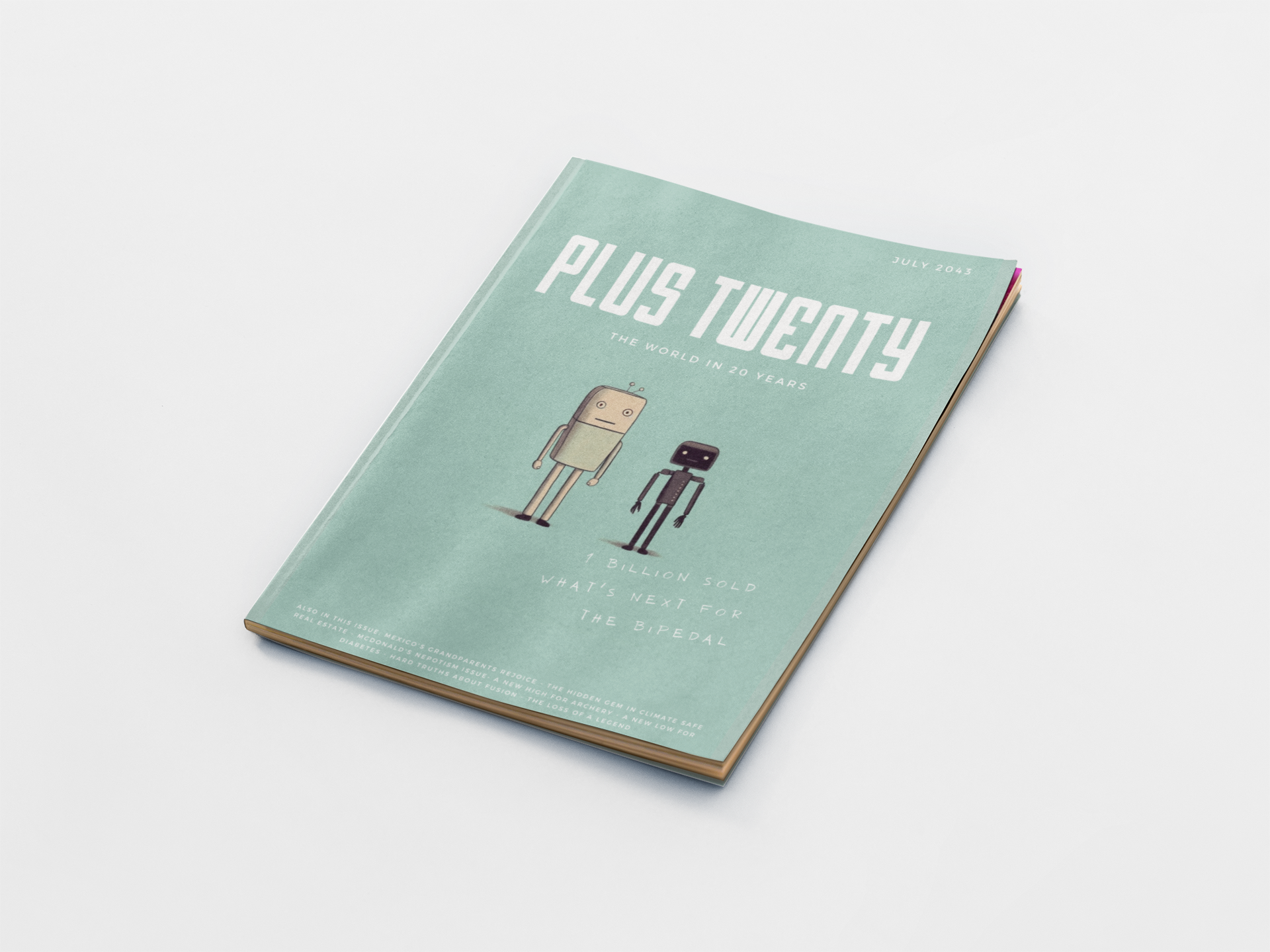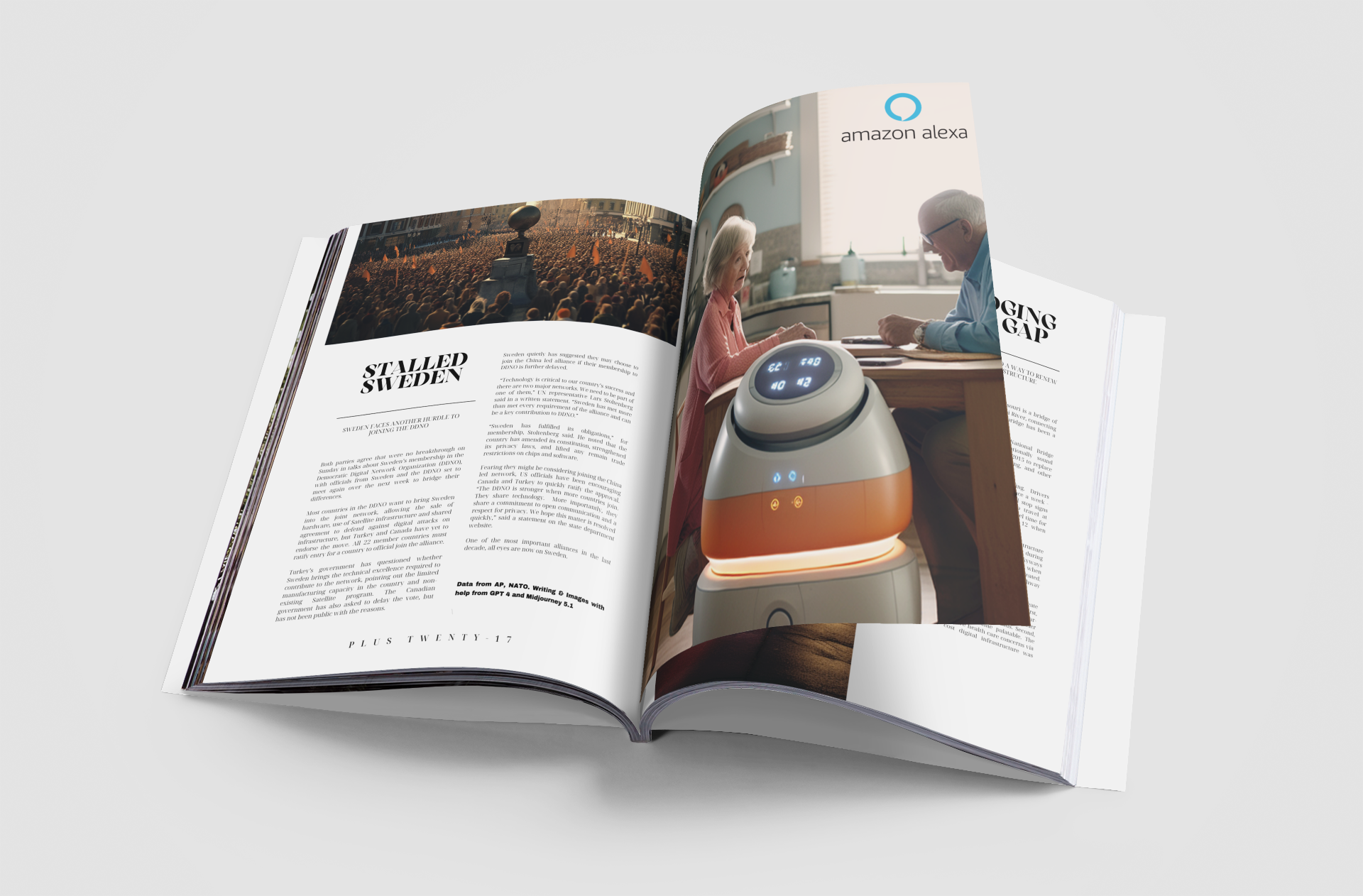
plus 20
Plus 20 is a news magazine, like the The Economist or Time, set 20 years in the future.
email me new Issues!
Latest Issue
July, 2043
Why Write It?
It may take the form of a hyperbolic technology pitch or thrilling speculative fiction paperback, but today’s world of futurism generally optimizes for this same combination of entertainment, optimism and mystique. I wanted to build an alternative – a place where prediction was treated more seriously– where we started to better unpack and debate what lies ahead in a level of reality, expertise and accountability never created.

how it works.
Plus 20 was created to formulate a better way to predict the future. It achieves this by abiding to three principles
Think 20 years out
Most of us simply try to get through our day. A great entrepreneur or leader might think 3-5 years out. A patient scientists might dream 10 years out. I wanted a place where the world would be motivated to think 20 years out. Why 20 years out? That the world someone born today will have to navigate for their children.
Uncover the science of prediction
When someone does think 20 years out, we consider it science fiction, another world for make-believe. I believe there can be a science of futurism, which will be built by auditing predictions against data and training our mental models to better predict what comes ahead.
Create the full picture
Have you ever taken a picture in the same spot a few years apart? Not only do you and the background look a bit older, the camera (ie the lens by which we view the world) itself changes. I wanted to reimagine (and continue to reimagine) the entire experience of what the world might look like in 20 years – the advertisements, citations, table of contents and more. That’s the only way to truly form a picture of the future world.

the magic of ai.
I have wanted to start a magazine for a long time. But unlike writing a book or a song, I never felt I could control the full experience. Creating a magazine historically required photographers, editors, publishers & more. To pay those people, you needed advertisers. The end result was creating a vision alongside several interests, which I find typically turns a novel vision to something more mainstream and generic.
I spent a lot of time on this, but with the AI tools now available, I was able to do it all myself. I could generate photos, edit writing and cost effectively manage the creative process. I know there is concern for jobs, but given what I think the world is about to create as these tools grow, it’s hard not to see AI as a massive unlock to human creative output.